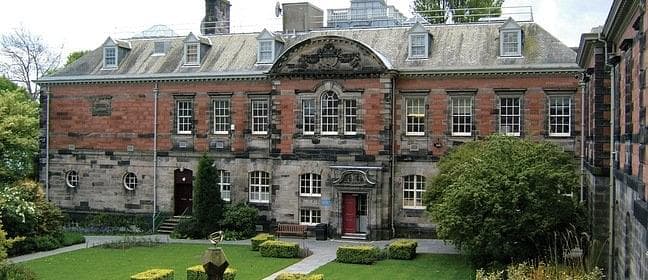Modules
Levels 1-3
Principles/Foundation block
Level 1 will start with an introductory block where you'll cover the scientific principles that underpin the function of the human body.
You'll learn the basic principles of the normal structure and function of body systems, and be introduced to broad categories of disease (for example, infection and cancer).
Systems-based teaching
You'll then move on to systems-based teaching, which looks at the body's organ systems. Weeks within these blocks are themed according to the specific but common things patients may present with.
Classroom-based teaching is complemented by the development of your vocational skills through clinical skills practice, and hands-on experience on wards and in general practice. This is something you'll gain from the start of Level 1.
In Dundee we use a spiral curriculum. This essentially means that from day one, we lay the building blocks needed for all aspects of a medical career and keep revisiting and adding to these as you progress through the course.
Clinical skills
Throughout your studies you'll build on your clinical skills in our Clinical Skills Centre (CSC) – a purpose built simulation-based education facility that is made up of fully-equipped replica wards. This means that by the time you graduate, you'll be able to complete important tasks, like taking a case history or a blood sample with confidence, accuracy, and efficiency.
Within the CSC, procedure rooms are used to deliver training on a variety of areas of medical practice. These range from simple, but important, skills such as appropriate hand hygiene to more complicated skills and procedures used in medical specialties such as ophthalmology.
This includes infection control, assessing and documenting vital signs, communicating with patients and other healthcare professionals.
The Centre also has a multipurpose simulation suite which allows you to participate in simulated exercises, including dealing with trauma victims, cardiac arrest scenarios, and managing a deteriorating patient. We use a mix of mannequins, actors, and real patients throughout our simulation training.
Student selected components (SSCs)
You'll take at least one SSC during each year of your studies.
SSCs are self-directed opportunities for you to undertake relevant work experience, and are designed to give you the opportunity to explore areas of interest in more depth, and build your wider skillset. Examples of recent SSCs include
-
in-depth study of clinical specialities (pathology, microbiology, biochemistry...)
-
creating learning aids including podcasts, wikis, and apps
-
arts-based modules covering medicine in literature or the history of medicine
Levels 4-5
Clinical teaching
Levels 4-5, focuses on developing your practical skills in preparation for your role as a junior doctor.
You'll start with a transition block that will help you learn how to get the most out of your ward-based learning. Throughout these years, you'll rotate around a variety of hospitals and primary care centres in a series of clinical attachments where you'll explore a wide range of clinical problems, looking at the patient as a whole rather than focusing on specific disease entities. This strategy will ensure patients' concerns and problems are central to your practice.
Clinical attachments
There are a variety of clinical attachments throughout Levels 4 and 5. These cover:
-
medicine - general medicine and medical specialities (neurology, oncology, and infectious diseases)
-
surgery - general surgery and surgical specialities (ENT, ophthalmology, and urology)
-
integrated specialities - old-age medicine, dermatology, orthopaedics, rheumatology, emergency medicine, and anaesthetics
-
obstetrics, gynaecology, and child health
-
general practice and psychiatry
Electives
During Level 5, you will have the opportunity to undertake an eight-week elective, which can be overseas - this is a period of clinical practice that you'll organise and will allow you to focus on your own objectives.
